Feature
Preaching Christ Crucified in Modern-Day Rome
With a church plant and recent theological conference in Rome, Lutheranism is blossoming in Italy.
A walk through the streets of Rome reveals that Italians have historically loved theology. It’s inscribed upon their walls and fashioned into their architecture, a daily part of their visual landscape. Whether they give much thought to it today, they can’t escape it.
And, to some degree, they don’t want to.
The Rev. Tyler McMiller, a missionary of The Lutheran Church—Missouri Synod (LCMS) who is based in Italy, is taking advantage of this love of theology to promote a new church plant in the heart of Rome. Working alongside him are other LCMS missionaries from the Eurasia region and a number of Italians who treasure Lutheran theology.
Theological Conferences as Evangelism
Most American Christians would not consider theological conferences a particularly effective evangelism tool. But for those in southern Europe, the conferences provide fodder for discussion and help make connections to support the planting of churches.
The Rev. Dr. David Preus, an LCMS missionary and theological educator in Eurasia, has seen the effect such conferences have: “[These conferences are] really how the conversation extends, [how] the church grows. And this leads to church planting. … Theological conferences are a kind of tool for church growth.”
On Jan. 25–27, 2024, a group composed of missionaries, lay members of the blossoming Lutheran community and inquiring minds from Rome gathered to hear and discuss papers presented on the doctrine of justification, the fundamental teaching that sinners are declared righteous by God for Christ’s sake through faith.

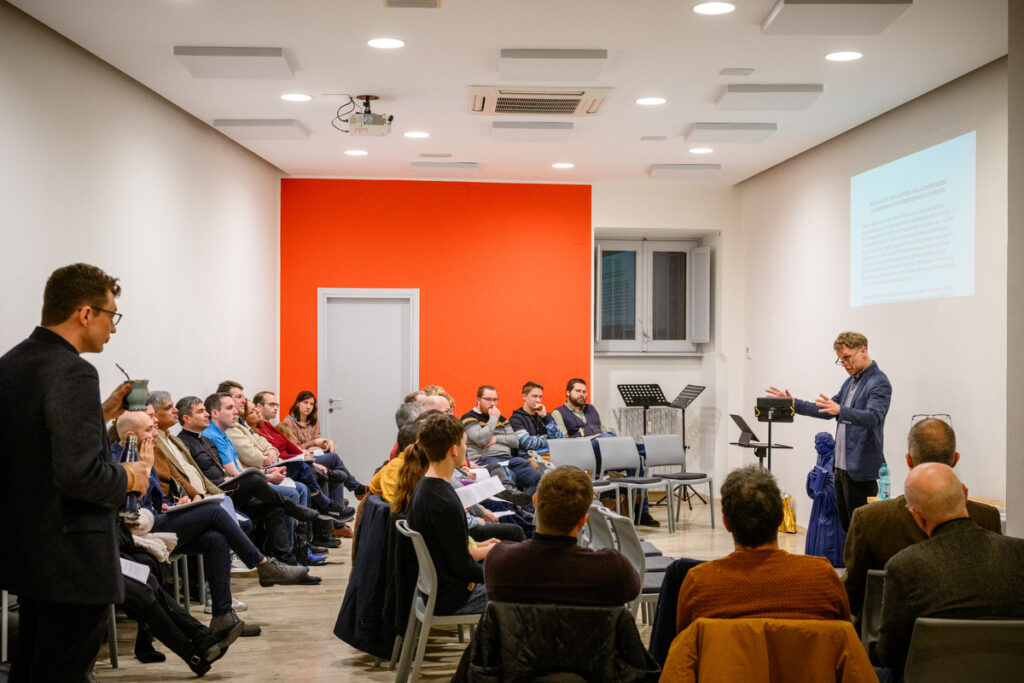
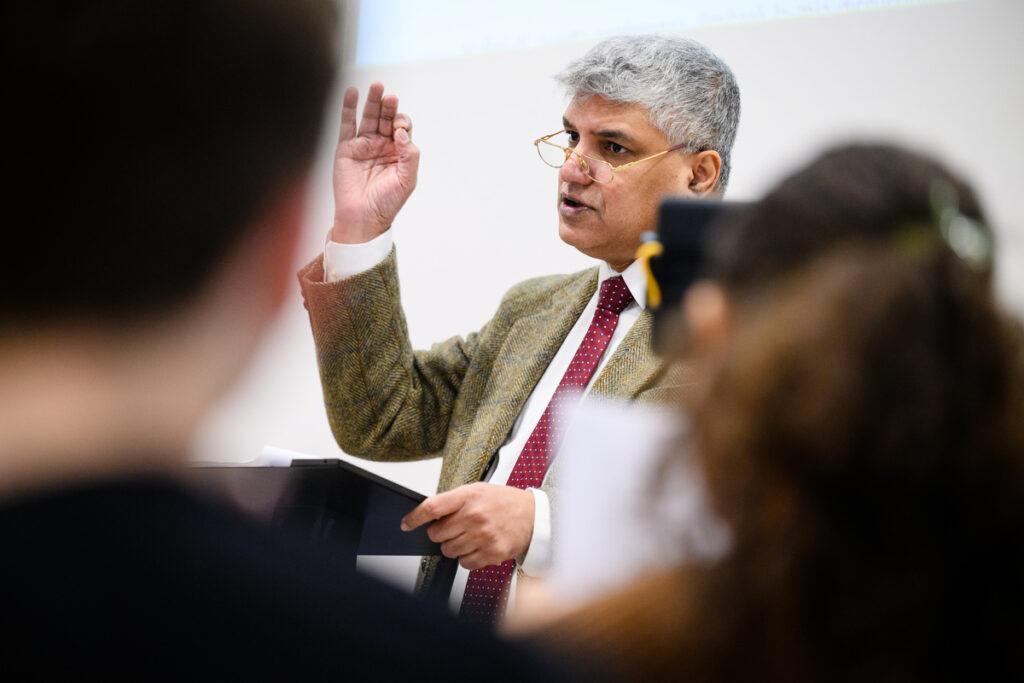
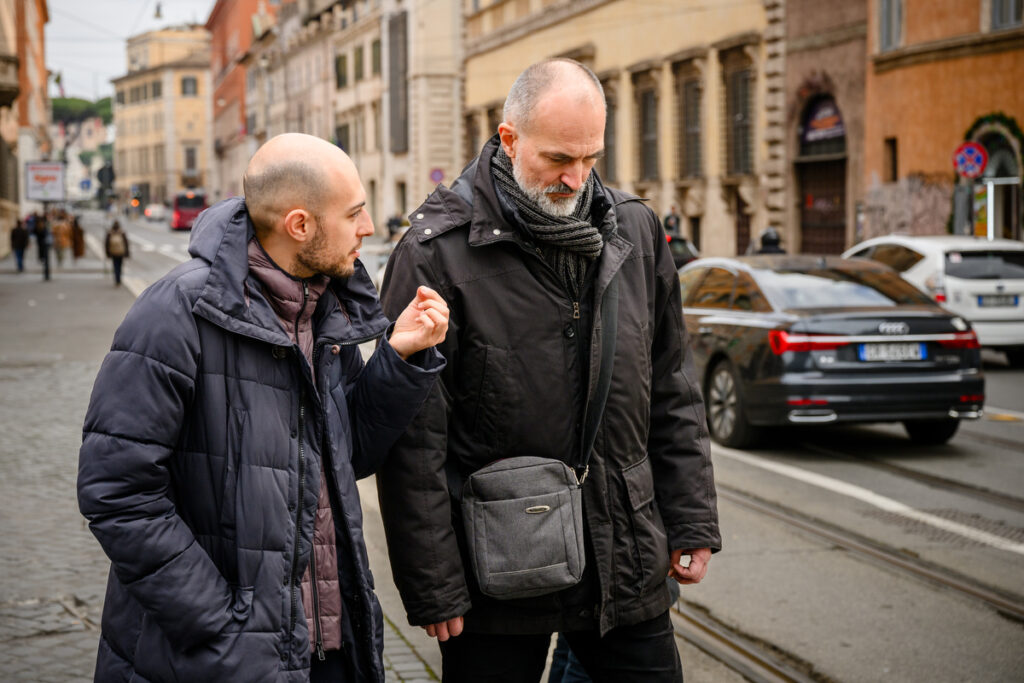
The six papers presented during the three-day conference addressed topics such as the difference between Lutheran and Roman Catholic definitions of justification, how the Apology to the Augsburg Confession teaches justification, an examination of Martin Chemnitz’s writings on justification, and more.
The doctrine of justification is a central sticking point between Roman Catholics and Lutherans. The choice of topic was not, therefore, incidental: “We like to pick themes that are appropriate to the local place because that’s going to help with the conversation,” Preus noted. In his presentation, he explained that while justification is central to Lutheran teaching, it largely exists on the periphery of Roman Catholic thought.
While theological conferences in Rome are not uncommon, they often focus on topics such as Christian ecology or artificial intelligence. These topics attract a small group of elite theologians, but they rarely provide comfort to the soul troubled by sin. The Rev. Dr. Jules Gomes, a journalist who frequently attends such conferences in Rome, said that this conference on justification was “a breath of fresh air.”
‘The Whole Point’
The conference was planned to help with the planting of a church in Rome. McMiller, who lives in Rome and serves throughout the Italian peninsula, has been amazed at how many Italians are reaching out to him to learn about confessional Lutheranism. Many of these contacts are generated through Lutheran social media, YouTube channels and podcasts.
“I’m in contact with people from every corner of the peninsula. I’m catechizing a man in Sicily right now,” McMiller said. “I just got done catechizing a woman in southern Italy; I’ve got people in the Naples area, Rome, Florence, Padua, Turin, Milan. They’ve all contacted me.”
This hunger for the Gospel led the LCMS Office of International Mission (OIM) to send McMiller to plant a church in Rome.
“The majority of churches [in Rome], especially after Vatican II, are not interested in doctrine and in the teaching of the Gospel,” said Lorenzo Murrone, a member of the new church plant and a student in the online theology program at the Luther Academy in Riga, Latvia. “We’re offering a confessional, biblical but also sacramental opportunity for people to approach Christ in a way that gives assurance of their forgiveness of sins.”
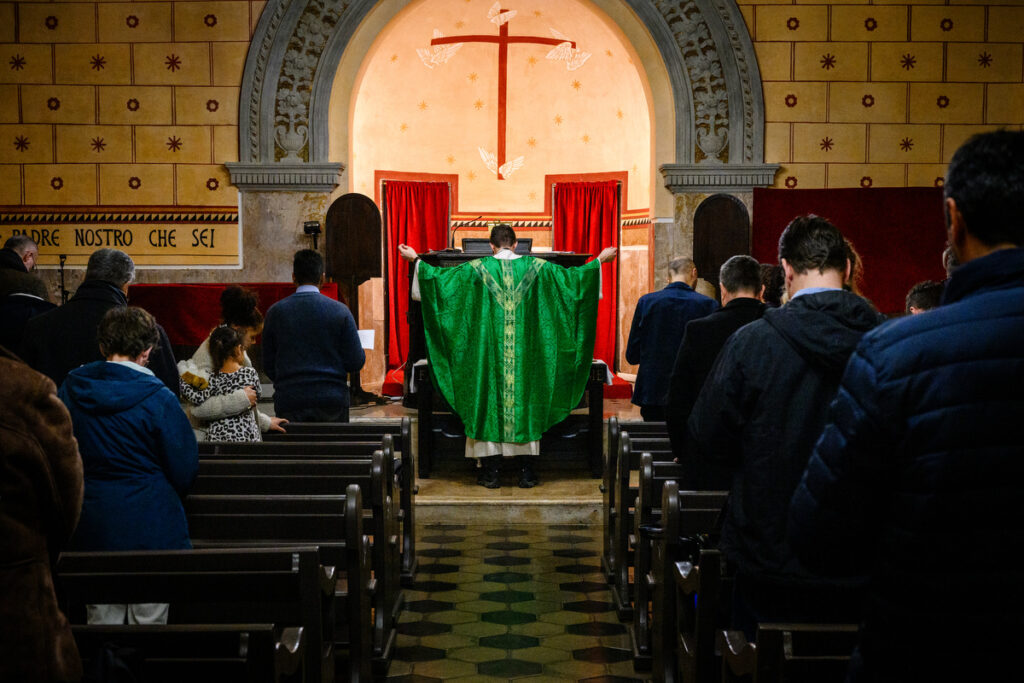
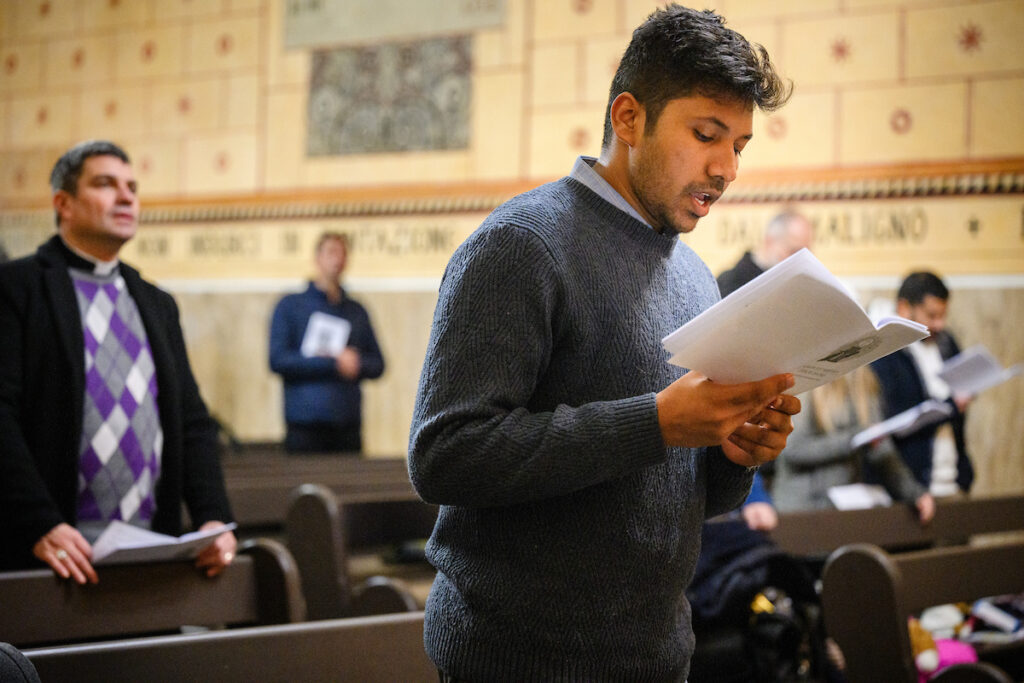
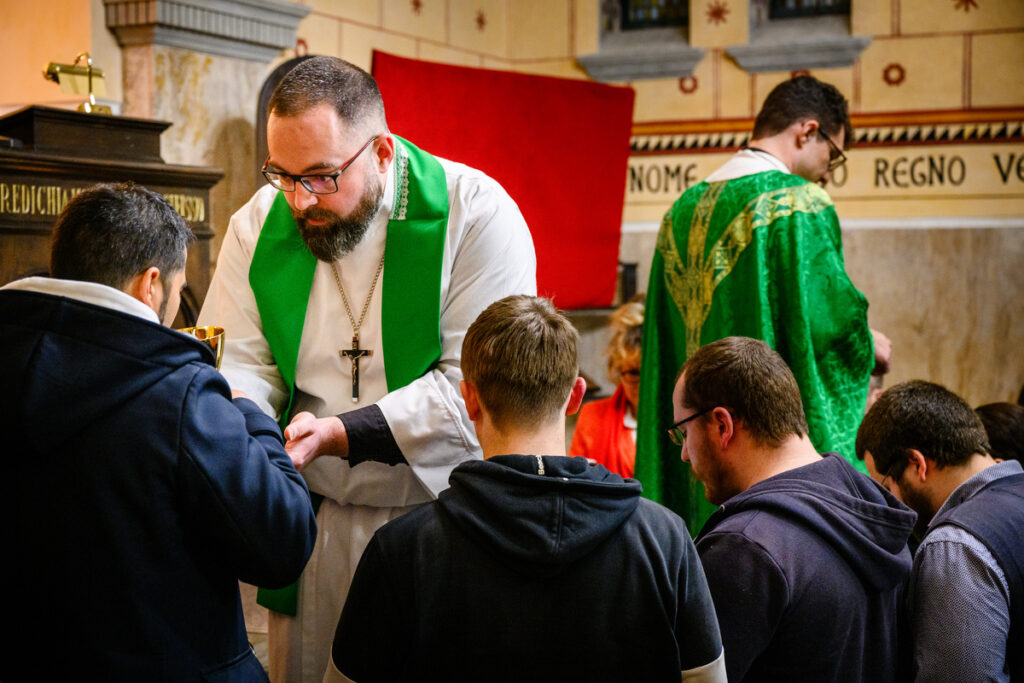
On the last day of the conference, attendees and members of Christus Victor Lutheran Church gathered for the congregation’s inaugural service at its new location. They had been meeting in McMiller’s home and via Zoom, when necessary. Now, they are gathering in the heart of Rome, not 300 yards from the Pantheon.
The building belongs to a Baptist congregation in Rome and bears the Italian translation of the Lord’s Prayer inscribed along beautifully ornamented walls. The pulpit perches above the altar, with the words Predichiamo Cristo crocifisso (“We preach Christ crucified”) in gold lettering across the front. The altar bears the words Fate questo in memoria di me (“Do this in remembrance of me”).
“We’re very excited,” said Murrone about the inaugural service. “We are presenting [in Rome] an option that is neither evangelicalism nor Roman Catholicism.” This proclamation of the Gospel is “really the whole point,” he says, of their work.
Translating into Italian
Central to the work of Christus Victor is the regular reception of Christ’s gifts through preaching and the Lord’s Supper. Murrone and fellow seminarians Joshua Salas and Luiz Roberto Lange, with the support of others in Italy as well as that of LCMS missionary Deaconess Sandra Rhein, are translating the rich liturgical heritage of Lutheranism into Italian.
They have been industrious. So far, they have translated nearly 250 hymns into Italian. Of those, around 100 are being included in a small booklet, currently being prepared for publication, that will also include Matins, Vespers and a setting of the Divine Service.
This translation has largely been the work of the Italian laymen, and they’re not stopping with the hymnal. They have already translated Luther’s Small Catechism and are currently working on the Book of Concord.
McMiller shared that the translators have found assistance in an unlikely place: artificial intelligence. AI tools excel in the translation of languages, and the team has experimented with using them to produce a baseline text for some documents. The team then revises the document to make sure that theological nuances are not inadvertently lost. This makes the translation process go much faster, thereby freeing up time for the missionaries and church workers in Italy to continue proclaiming the Gospel. But despite these experiments, all hymns, liturgy and the Small Catechism were done “the old-fashioned way.”
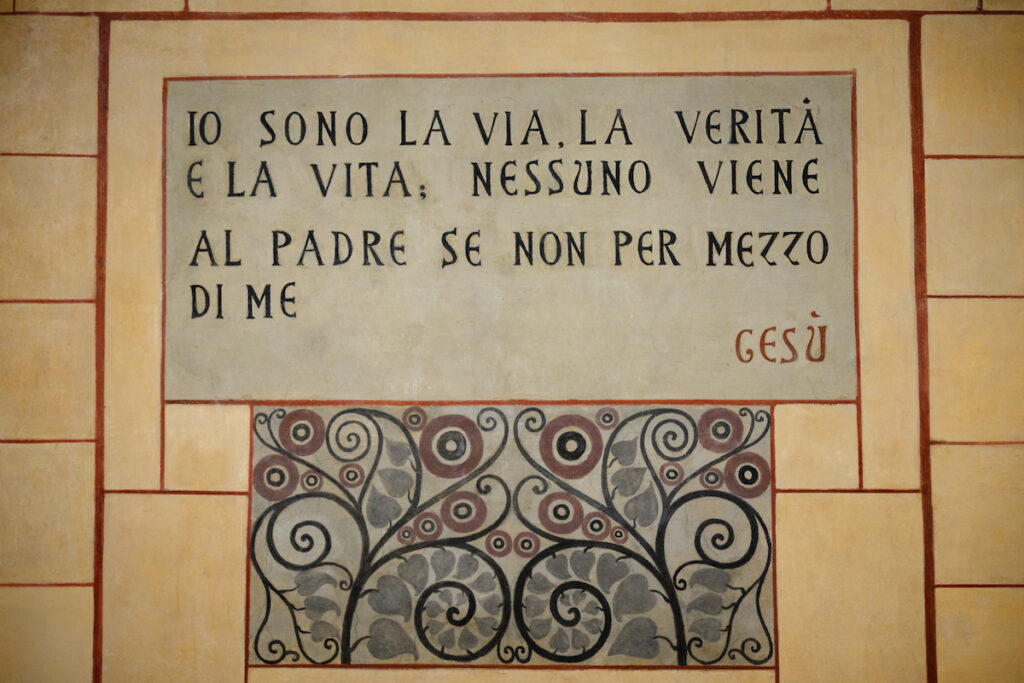
A Love of Theology
The love of theology and the proclamation of the Gospel are the roots of both Christus Victor Lutheran Church and the blossoming of Lutheranism in Italy. They also are the reasons that Salas, Murrone and Lange are all studying to become pastors.
Salas and Murrone took a long journey through liberal Roman Catholicism and evangelicalism before arriving at confessional Lutheranism. They met and became friends while attending an Anglican church in Rome. But this church encouraged them to accept women’s ordination and other liberal teachings.
Around that time, they found confessional Lutheranism through the social media channels of several LCMS pastors in the United States. They reached out to the OIM and were put in contact with LCMS missionaries working in the region.
Eventually, Murrone, Salas and Lange signed up for online classes at the Riga Luther Academy. They look forward to graduating in the next year and becoming Lutheran pastors in Italy.
Salas, who moved from Pakistan when he was young, also looks forward to reaching out to the Islamic population of Rome. The city has a significant population of people from Sri Lanka, Bangladesh and Pakistan. “Given that I come from Pakistan and I know the Islamic mentality, I think I have the upper hand to talk with them,” Salas said. “I know the culture, the background. And that will help me to converse with them.”
What started as a desire for more theological education and training has blossomed into a Lutheran church planted in the heart of Roman Catholicism. God willing, it will continue to go forth through faithful preaching and teaching throughout all of Italy.
Learn More
- Meet missionary Rev. Tyler McMiller
- Read about the Luther Academy in Riga, Latvia
Pray with Us
O God who revealed all truth in the incarnation of Jesus, we praise and thank You for the love of God’s Word in Italy, and we pray that You would continue to bless the planting of Your Church throughout Italy so that all may hear the saving Gospel message; through Jesus Christ, Your Son, our Lord, who lives and reigns with You and the Holy Spirit, one God, now and forever. Amen.
Share Jesus with the World
Your generosity today makes possible your Synod’s witness and mercy efforts both at home and abroad.
Are you looking to direct your gifts for work that’s more specific?
Visit the LCMS online ministry and mission catalog to find those opportunities most meaningful to you!
Don’t see what you’re looking for?
Contact LCMS Mission Advancement at 888-930-4438 or mission.advancement@lcms.org to talk about all the options available.
Rev. Roy S. Askins
Director of Editorial for LCMS Communications and executive editor of The Lutheran Witness.

